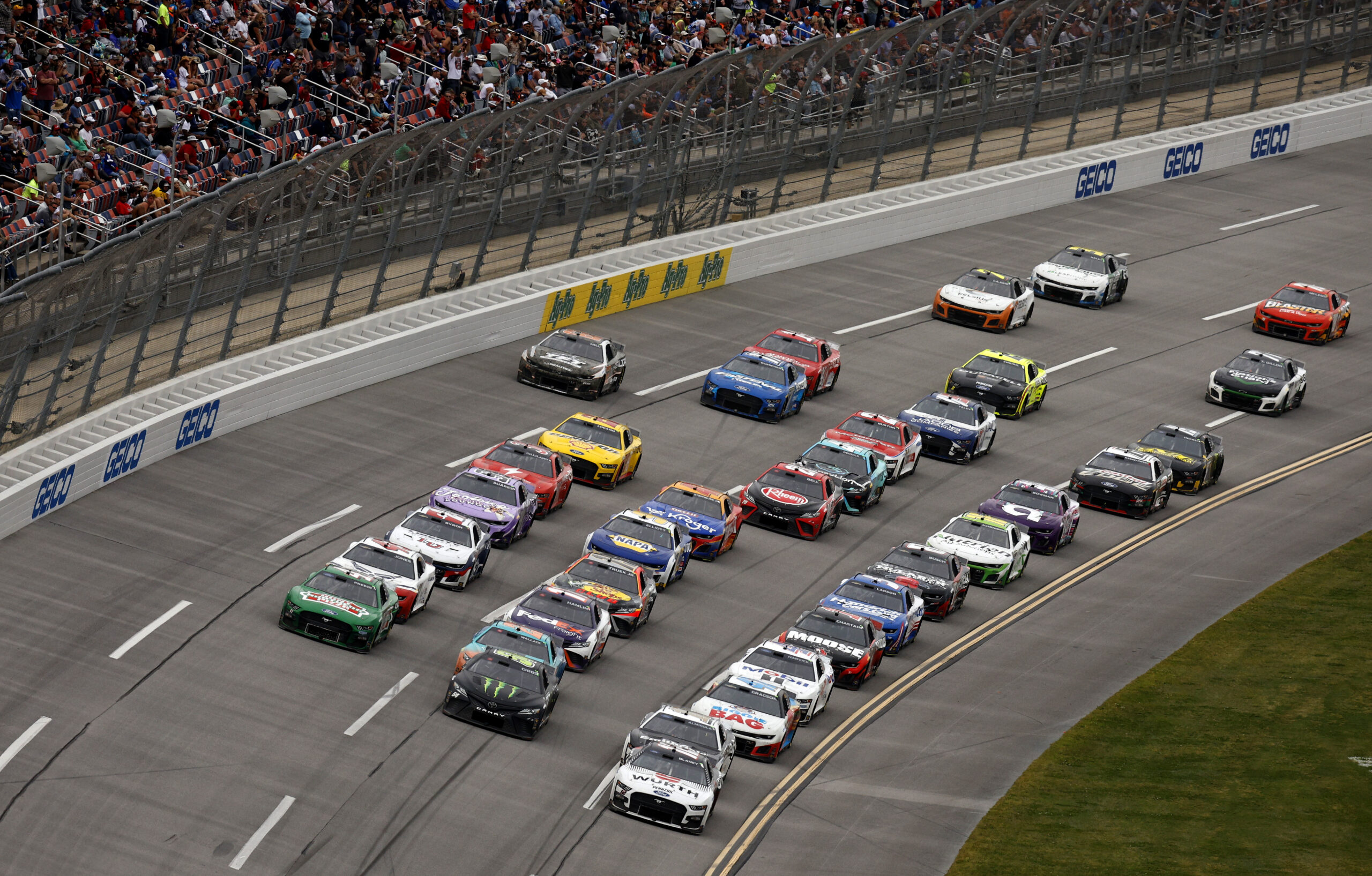
NASCAR heads to Texas Motor Speedway this weekend, the sight of the last 200 mph qualifying lap in NASCAR history. Since then, NASCAR elected to reduce horsepower to bring in more manufacturers and save money. However, as Daniel McFadin points out, no new manufacturers have been added since. It raises a question, is it time to finally add horsepower to all NASCAR race tracks?
#NASCAR reduced HP to save money and attract new manufacturers, which would then lead to more charters.
— Daniel McFadin (@danielmcfadin) September 20, 2023
5 years later: *crickets* https://t.co/anQpWldQIG
Adding more horsepower could vastly improve the racing product at many race tracks, particularly at short tracks. Many drivers and fans have been pulling for more horsepower to be given at short tracks for this very reason.
More horsepower would also increase the speed of the cars, therefore making qualifying a much bigger spectacle. As it is now, it is difficult for many more seasoned NASCAR fans to get excited about certain qualifying speeds anymore. If the horsepower is increased, the speeds in qualifying will increase as well.
It also puts NASCAR in closer competition with other motorsports in terms of horsepower. Formula One cars have around 1000 horsepower and IndyCars can have upwards of around 700 horsepower. At this point, Formula One is NASCAR’s main competitor, and they have significantly more horsepower than NASCAR does at 670.
It’s hard for NASCAR to promote its horsepower number to the general public because it is not what it once was. The average person who knows nothing about racing may look at F1 with 1000 horsepower with the grip and speed that they have compared to NASCAR, Formula One may look more enticing.
Also, as Daniel McFadin noted, there has been no new manufacturer on the horizon for NASCAR. So, the decreased horsepower has not had the benefit that NASCAR hoped it would. As a result, if the thing NASCAR wanted to get out of having more horsepower did not happen, then why not go back to increasing horsepower?
Would adding horsepower really improve the racing product as a whole? It could go a long way to improving the racing product on short tracks and road courses, but the racing product on intermediate race tracks is doing just fine. More horsepower means that it could have a negative effect on that racing product, and is NASCAR willing to risk that?
On top of that, we need to think about the branding of NASCAR. NASCAR is a stock car racing organization, and having less horsepower means the cars have more in common with the average cars out there on the street. If there is more horsepower in the cars, it makes it more out of touch with the common cars on the street.
Increasing horsepower would also not be totally feasible at every race track. Daytona and Talladega cannot increase horsepower out of a safety concern. The Ryan Preece flip at Daytona showed that high speeds are still a major safety concern.
Is NASCAR willing to let these cars go faster on intermediate race tracks? Will the speeds ever get too fast to become unsafe? That could be a concern if NASCAR adds more horsepower and aerodynamics becomes more and more important.
Increasing horsepower is very popular amongst the fans and even some pundits. However, is it the right thing to do? There is a lot to consider if NASCAR wants to go that route, not to mention the potential financial ramifications.